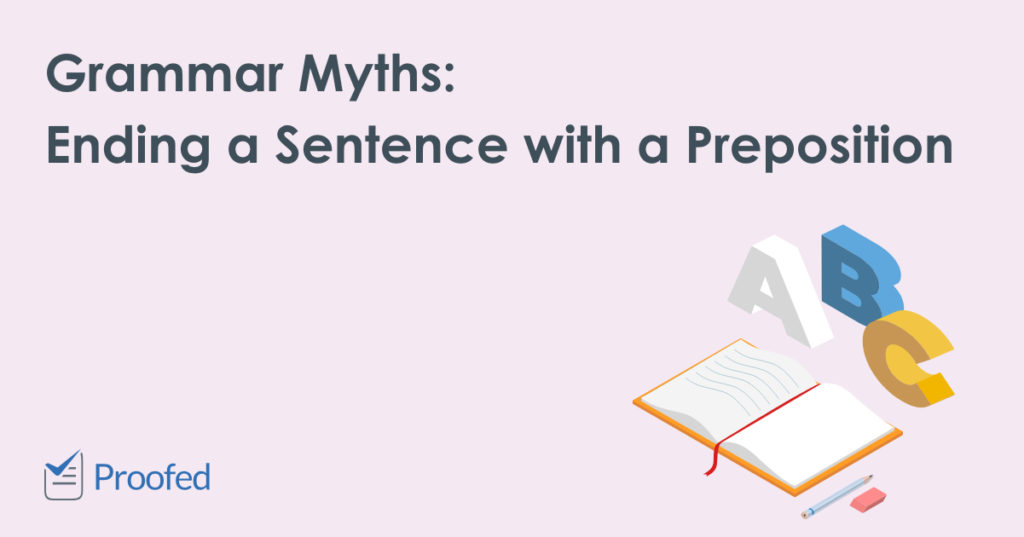
Ending a sentence with a preposition has long been forbidden by grammar pedants. And when accused of doing this, Winston Churchill is supposed to have responded:
This is the sort of nonsense up with which I will not put!
Do you see what he did there? And even if he probably never said it, it provides a great jumping off point for discussing a famous grammatical “rule.” So is ending a sentence with a preposition really so bad? And if not, where did the rule come from? Let us explain.
The Origins of the Myth
Some people insist that it’s wrong to end a sentence with a preposition. This is otherwise known as using a “terminal preposition.” The rule about this comes from the notion that English should follow the same rules as Latin, in which it is impossible to end a sentence with a preposition.
For someone who holds this view, sentence A below would be wrong:
A) You are reading the book which my article was published in.
B) You are reading the book in which my article was published.
The problem is that sentence A ends with the preposition “in,” while sentence B places the preposition in the middle of the sentence. Arguably, this makes B sound more formal than A.
Find this useful?
Subscribe to our newsletter and get writing tips from our editors straight to your inbox.
But, at the same time, it is easy to understand what sentence A means. And English is not Latin, so there is no reason to follow Latin-specific rules. Modern English is much more flexible about preposition placement. And there’s no reason not to end a sentence with a preposition.
Is Ending a Sentence with a Preposition Wrong?
In English, we regularly use prepositions at the end of sentences. As long as the sentence in question reads clearly, this is fine. In fact, as shown by the quote attributed to Churchill above, avoiding terminal prepositions can sometimes make a sentence more confusing!
For instance, rather than “up with which I will not put,” we would usually say:
This is the sort of nonsense which I will not put up with!
And while this sentence ends with the preposition “with,” it is easier to understand than the original version, which was designed to show what happens when we follow grammar “rules” blindly.
The “rule” forbidding terminal prepositions is thus a myth. But, more importantly, it’s also bad advice! Most of the time, it’s fine to end a sentence with a preposition, especially if it’s part of a verb phrase such as “put up with.” The key is ensuring your work is clear and easy to read. And if you’re ever unsure whether you’re using prepositions correctly, we’re here to help!
